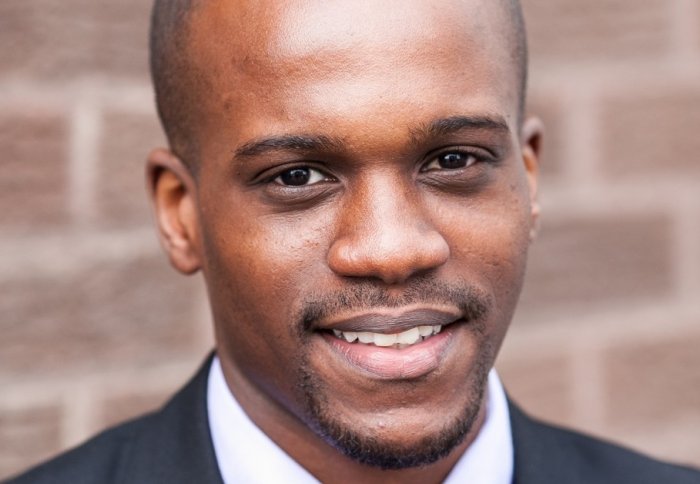Diversity in leadership discussed at Black History Month event

Social entrepreneur and political campaigner Samuel Kasumu spoke at Imperial College London to mark the thirtieth anniversary of Black History Month.
Samuel is a contributing board member of various trustees including the award-winning Elevation Networks, a charity he started at the age of 19 which focuses on tackling gender and race inequality within the workplace. He is also a trustee for the Peace Alliance, an organisation that promotes peace across London, and has a strong involvement with the voluntary sector. In his current role he is Managing Director of an organisation that supports start-up businesses.
Sometimes what people want to achieve seems so distant from themselves, that they don't realise all they have to do is take that one first step.
– Samuel Kasumu
Samuel’s keynote lecture looked at the multi-ethnicity of Britain, the Grenfell disaster, and representation – before inviting audience members to ask questions and engage in a discussion about what more needs to be done.
“The pace of change is increasing,” he said. “Society is recognising that diversity does matter. There is a lot of hope, but also a lot of tough conversations that we need to have.”
Black History Month is held to highlight and celebrate the achievements and contributions of the black community in the UK. This year, to celebrate the thirtieth anniversary of the month, over 4,000 events took place across the UK in October. Samuel refers to Black History Month as “a necessary evil”.
He said: “We would love to get to the point when we don’t need a month to identify that a group of people have a history. [But] there was a need to have a conversation. Only a few people and the same kinds of people were having this conversation.”
A business case for diversity
Speaking about representation at management and senior board level, he said: “Clearly we have made good progress, but whether or not it is sufficient is up for debate. This is probably the first time in history in Britain that people who have influence are saying, why does your board look that way?”
Looking forward, one audience member asked Samuel what institutions like Imperial could do to improve diversity within the staff and student body. As well as looking at recruitment practices, he also recommended focusing on how talent is progressed from within.
“How do you engage as an employer or an organisation committed to diversity? What are you doing to ensure that you are seen as somebody who champions and embraces diversity?
“There is always a business case for diversity. It is not just the right thing to do, it makes business sense.”
A hearts and minds challenge
Samuel spoke about the need to encourage people from underrepresented backgrounds to apply to university. When applying to university himself, he gained a place to study business and management at Imperial College London but turned it down. “I went to visit and I felt like none of these people remind me of me.
“There is still a hearts and minds challenge within higher education. If you look at a particular place and there’s nobody who looks or sounds like you, we shouldn’t expect people to just have the confidence to apply. There needs to be a way that students feel comfortable putting themselves forward for those institutions. I think there is a structural challenge.”
Samuel chairs the Great Debate Tour, the UK's largest university debate forum, which is held between October and November as part of Black History Month. The tour is a celebration of diversity and heritage as well as a forum for powerful, thought-provoking discussion. This year the team filmed a documentary of the tour.
“My aspiration is to send the documentary to every school in the land, so the students can say, well actually those students at Imperial look and sound like me. Sometimes what people want to achieve seems so distant from themselves, that they don't realise all they have to do is take that one first step.”
Article text (excluding photos or graphics) © Imperial College London.
Photos and graphics subject to third party copyright used with permission or © Imperial College London.
Reporter
Jennie Rawling
Communications and Public Affairs